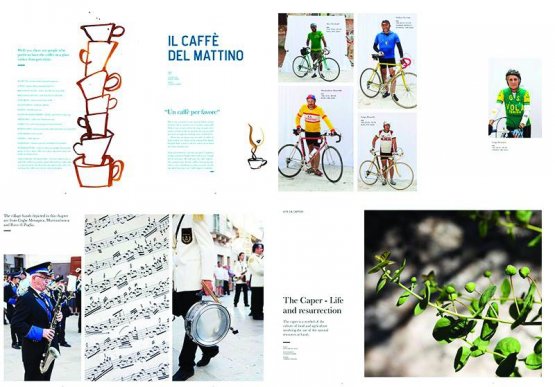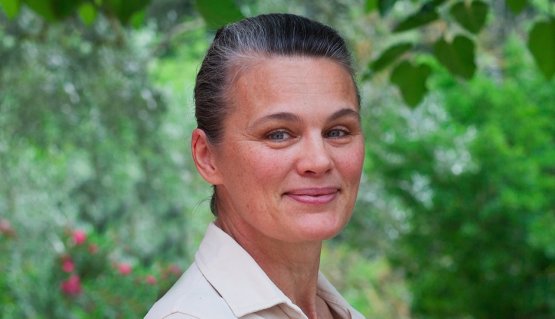«In my dreams, Caffè Italia is to be a series, a collection of beautiful stories. A habit that we’re gradually losing as our profession as reporters, of images or photos, is no longer taken into consideration. Cultured and intelligent editors in chief have disappeared from editorial staffs. Copying from the Internet is unacceptable for those in our filed. Our children are surrounded by advertorials impoverishing the world. We have a moral duty towards them». Swedish Johanna Ekmark, managing one of the projects of the highest quality and intensity we’ve come across lately, doesn’t lack in enlightened vision.
Caffè Italia, subtitle the soul, flavour and backbone of Italy, is ideally born in the Seventies, when her family moves to Maremma for the holidays. The girl is so charmed with our country that at 17 she decides to complete her high school studies in Colle Val D’Elsa.
As of 1984 she works as farmer on the hills of Parma, and in 1996 she changes profession and becomes a photographer. She goes to Milan where she stays until 2010, when she moves for the first time out of her adoptive country: «I moved to Marseille, convinced that living in a neighbouring country would be the same. But there were no plumbers or electricians capable of doing their job. I learnt how important it was to illustrate the great Italian craftsmanship».

The paper and the result of the project are beautiful. "As of issue number two we would like to include a pamphlet with content in Italian too"
Issue
Numero Uno begins with a story about an artisan of food,
Corrado Assenza. It is told through the plot of “The Caper – Life and resurrection”, the humblest plant can reach paradise, pushed by hands that know what to do. «
Caffè Italia was in fact born at
Caffè Sicilia in Noto», reveals
Johanna, «For this reportage I put myself to his complete service».
When flicking through the pages, the dazzling light of the photos stands out, made precious by an uncoated, porous and scented paper: «I wanted quality in every way. I was helped by the Italian typographers at
Trifolio, the utmost excellence, and Swedish paper producer
Arctic Papers. They met my needs because they understood the spirit of the project». After all,
Caffè Italia is a project of real economy: «It costs the amount of money it costs to produce it and market it». The distribution is online or through very few selected shops, «Because half the price would otherwise go to the distributor, it would be unsustainable for us».

PHOTO-FARMER. Swedish Johanna Ekmark, the curator and creator of Caffè Italia, has been a photo-reporter for 20 years and a farmer for 12
We’re only at page 30 and right after that we’re struck by a feature on citizen bands in Apulia: «I know many Italians who do great works without expecting money. Band directors, for instance, have a huge social role». And then there’s the magic of
chiavarine, the handmade chairs produced by
Fratelli Levaggi in Liguria, «if they made them in Shoreditch, in London, they’d be very cool». The magic of tomato, an unprecedented Stromboli, the Veiled Christ in the Chapel of San Severo in Naples which seems to take life in the pictures of
Johanna, the colourful cyclers of the
Eroica in Gaiole in Chianti, «competing on bikes made before 1987».
A magnificent portrait of Italy, far away from every fashion, design and fast car stereotype. A precious epic of beauty, content and human capital. A deep focus on our artisanal greatness: «Even a housewife can be a craftswoman. People become craftsmen of their lives. Something that lastingly makes your country stand out among all the ones I’ve ever visited».